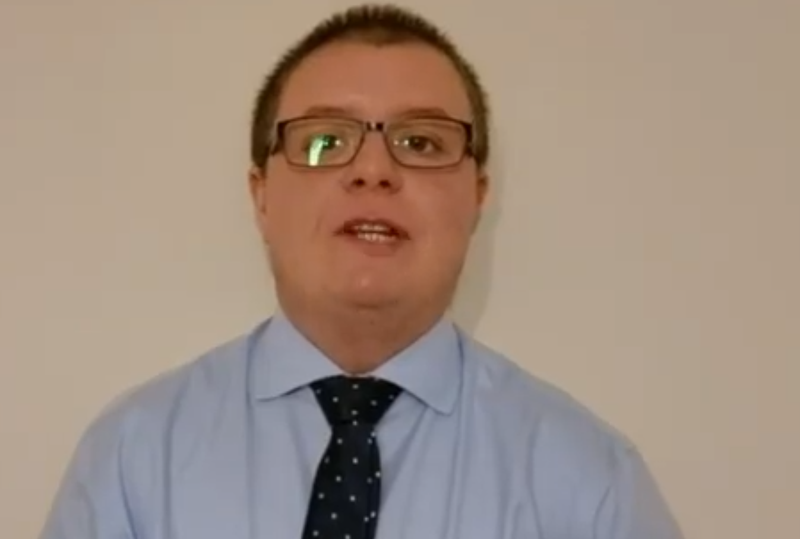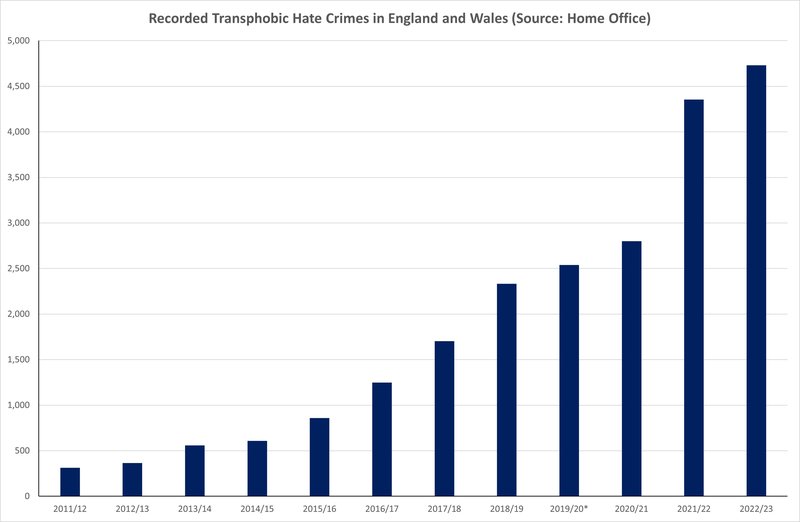Revd Dr Karl Rutlidge is a proud trans man, an activist, a husband, a stepdad and a Methodist minister.
In this blog, Karl considers the role of hate speech in violence against members of the trans community. 
Writing about hate crime is never an easy task, but recent events mean this year it is more difficult than ever, especially as a trans person.
The brutal murder of trans teenager Brianna Ghey was, according to the trial judge, partly motivated by transphobia. She was stabbed by two other children, whom she had believed were her friends, and left for dead in a local park. Her mother, Esther Ghey, has been praised for her remarkable compassion and is campaigning to address violent content on social media platforms. For many in the trans and wider LGBT+ communities, including me, it was deeply distressing as the details emerged of how Brianna’s killers had referred to her as ‘it’ and casually dehumanised her, something made more painful by prominent ‘gender critical’ people misgendering her and, in one case, calling Esther “evil” for allowing her child to transition.
This is, sadly, not an isolated incident. During this LGBT+ History Month, there has also been another trans teenager stabbed over a dozen times by other young people, who targeted her and called her various transphobic slurs. Thankfully, she is now out of danger. What makes it even worse is that multiple press outlets across the political spectrum have continued all the while to platform those invested in promoting anti-trans views, who appear desperate to imply that the hostile climate of transphobia across media and politics has nothing to do with creating a dangerous environment for trans people.
Well, the statistics suggest otherwise. Hate crime is difficult to track over time because definitions and data collection methods have shifted more than once. However, the latest data from the Home Office shows that hate crimes committed against transgender people last year in England and Wales reached a record number, at the same as racist and homophobic hate crimes recorded by police fell (bear in mind that hate crime is often significantly under-reported). One of the reasons cited in the government report for the 11% rise in 2022/23 was the comments made by some media figures and politicians.
The fact is that this kind of stuff has real world impacts, and not simply in terms of social media abuse, as bad as that can be as I know from almost daily experience. Just as one example, in my ministry, I spend a fair bit of time in the coffee bar run by one of the churches I serve. While working in there, I have heard people seriously claiming that trans folk have only appeared in the past few years, are delusional and dangerous biology deniers, and are undermining the rights of women and girls, all while using language that would be regarded as outrageous if directed towards many other groups. As someone who came out in 2012, being told trans people only came into existence after 2015 (it is not a coincidence that the surge in media interest coincided with same-sex marriage being legalised in various US states) is, well, news to me! It is very tedious, as well as reflective of real ignorance about our lives. We are so often stereotyped and demonised by religious and secular pushers of hate and falsehoods alike, and to be honest, I am exhausted by it all.
Zoe Williams, in a recent article in the Guardian, summed things up well when she said that being trans in this country is to be subject to constant negative scrutiny, to be used as a muster point for the far right, as an easy target for the media and for politicians, and that this has not happened without consequences.
It was interesting, therefore, to see the backlash that followed Rishi Sunak making a transphobic jibe from the dispatch box during Prime Minister’s Questions, on the very day when Esther Ghey was in Parliament and may well have been in the chamber at that time. However, the sad thing is that much of the outrage was connected to how this would have made her feel, with little or no recognition of how, without the mother of a murdered trans teenager present, such comments would likely have been taken as business as usual. Brianna’s father, Peter Spooner, was absolutely right to call on Sunak to apologise for his “degrading” and “dehumanising” words, but there were merely symptomatic of a deeper problem.
It is difficult not to conclude that there are powerful people out there who do not see someone like me as really human, let alone a person made in the image of God and infinitely valuable to God. At times, it feels like shouting into the void. I find myself coming back to the Psalmist’s cry of ‘how long?’ to God in the face of their suffering even as, for me, it is the love embodied in Jesus Christ which keeps me going. I know that whatever rubbish is thrown at me, I am a beloved child of God. However, while the world does not reflect this, I will keep on speaking out. Let justice rain down and soak the world in transforming love, so that all people will know they matter, and there may be no more dead teenagers like Brianna Ghey.
Rest in peace and pride, Brianna, and know you are loved so very much.